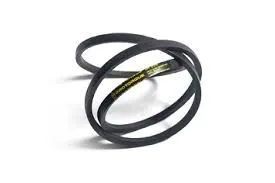- Arabic
- French
- Russian
- Spanish
- Portuguese
- Turkish
- Armenian
- English
- Albanian
- Amharic
- Azerbaijani
- Basque
- Belarusian
- Bengali
- Bosnian
- Bulgarian
- Catalan
- Cebuano
- Corsican
- Croatian
- Czech
- Danish
- Dutch
- Afrikaans
- Esperanto
- Estonian
- Finnish
- Frisian
- Galician
- Georgian
- German
- Greek
- Gujarati
- Haitian Creole
- hausa
- hawaiian
- Hebrew
- Hindi
- Miao
- Hungarian
- Icelandic
- igbo
- Indonesian
- irish
- Italian
- Japanese
- Javanese
- Kannada
- kazakh
- Khmer
- Rwandese
- Korean
- Kurdish
- Kyrgyz
- Lao
- Latin
- Latvian
- Lithuanian
- Luxembourgish
- Macedonian
- Malgashi
- Malay
- Malayalam
- Maltese
- Maori
- Marathi
- Mongolian
- Myanmar
- Nepali
- Norwegian
- Norwegian
- Occitan
- Pashto
- Persian
- Polish
- Punjabi
- Romanian
- Samoan
- Scottish Gaelic
- Serbian
- Sesotho
- Shona
- Sindhi
- Sinhala
- Slovak
- Slovenian
- Somali
- Sundanese
- Swahili
- Swedish
- Tagalog
- Tajik
- Tamil
- Tatar
- Telugu
- Thai
- Turkmen
- Ukrainian
- Urdu
- Uighur
- Uzbek
- Vietnamese
- Welsh
- Bantu
- Yiddish
- Yoruba
- Zulu
Dis . 17, 2024 22:07 Back to list
car timing belts
Understanding Car Timing Belts Importance, Function, and Maintenance
When it comes to maintaining a vehicle, many drivers may overlook the importance of one critical component the timing belt. This integral part of an internal combustion engine plays a vital role in ensuring that your car operates smoothly and efficiently. In this article, we will explore what timing belts are, their function within the engine, signs of wear, and essential maintenance tips.
What is a Timing Belt?
The timing belt is a crucial component that connects the crankshaft to the camshaft in an engine. It is typically made of durable rubber and reinforced with fibers to withstand high temperatures and significant wear. The timing belt's primary purpose is to synchronize the rotation of the crankshaft and camshaft, ensuring that the engine’s valves open and close at the proper intervals during each cylinder's intake and exhaust strokes.
How Does it Work?
The timing belt is specifically designed to keep the engine's components in perfect alignment. As the crankshaft rotates, it drives the timing belt, which, in turn, rotates the camshaft. This synchronization is crucial because, if the timing is off, the engine may misfire, cause excessive wear on the valves, or, in the worst case, result in catastrophic engine failure. A well-functioning timing belt ensures that the engine operates efficiently, maximizes fuel efficiency, and reduces emissions.
Signs of Timing Belt Wear
Over time, timing belts can wear out due to heat, stress, and age. It's important for vehicle owners to be aware of the signs that indicate a failing timing belt
1. Unusual Noises If you hear a ticking or grinding noise coming from the engine, it may indicate that the timing belt is wearing out or has become loose.
2. Engine Misfires An engine that misfires or runs inconsistently may have timing issues caused by a worn belt.
3. Oil Leaks Oil seeping from the front of the engine could point to a worn timing belt cover seal.
car timing belts

5. Engine Won't Start In some cases, if the timing belt has broken or slipped, the engine may not start at all.
Maintenance and Replacement
Most manufacturers recommend replacing the timing belt between 60,000 to 100,000 miles, although this can vary based on vehicle make and model. Regular maintenance is crucial for extending the life of the timing belt and preventing costly repairs. Here are some key tips
- Follow Manufacturer Guidelines Always refer to your vehicle owner's manual for specific recommendations regarding timing belt replacement.
- Inspect Regularly During routine maintenance check-ups, have a qualified mechanic inspect the timing belt for signs of wear, cracking, or stretching.
- Listen for Noises Be attentive to unusual sounds coming from the engine, as they could be early warning signs of timing belt issues.
- Check for Tightness A properly tensioned timing belt will not be too tight or too loose. Regular checks can help ensure optimal performance.
- Plan for Replacement If your vehicle reaches the recommended mileage for replacement, it is wise to get the timing belt replaced even if it appears to be functioning correctly. This preventative measure can save you from potentially devastating engine damage.
Conclusion
The timing belt is a small yet vital component of your vehicle’s engine, playing a crucial role in its overall function and efficiency. By understanding its importance, recognizing the signs of wear, and adhering to a maintenance schedule, you can ensure that your car operates safely and reliably. Remember, a well-maintained timing belt can save you not only from costly repairs but also from the hassle of unexpected breakdowns on the road. By prioritizing regular inspections and timely replacements, you are investing in your vehicle's longevity and performance.
-
Korean Auto Parts Timing Belt 24312-37500 For Hyundai/Kia
NewsMar.07,2025
-
7PK2300 90916-T2024 RIBBED BELT POLY V BELT PK BELT
NewsMar.07,2025
-
Chinese Auto Belt Factory 310-2M-22 For BMW/Mercedes-Benz
NewsMar.07,2025
-
Chinese Auto Belt Factory 310-2M-22 For BMW/Mercedes-Benz
NewsMar.07,2025
-
90916-02660 PK Belt 6PK1680 For Toyota
NewsMar.07,2025
-
drive belt serpentine belt
NewsMar.07,2025

